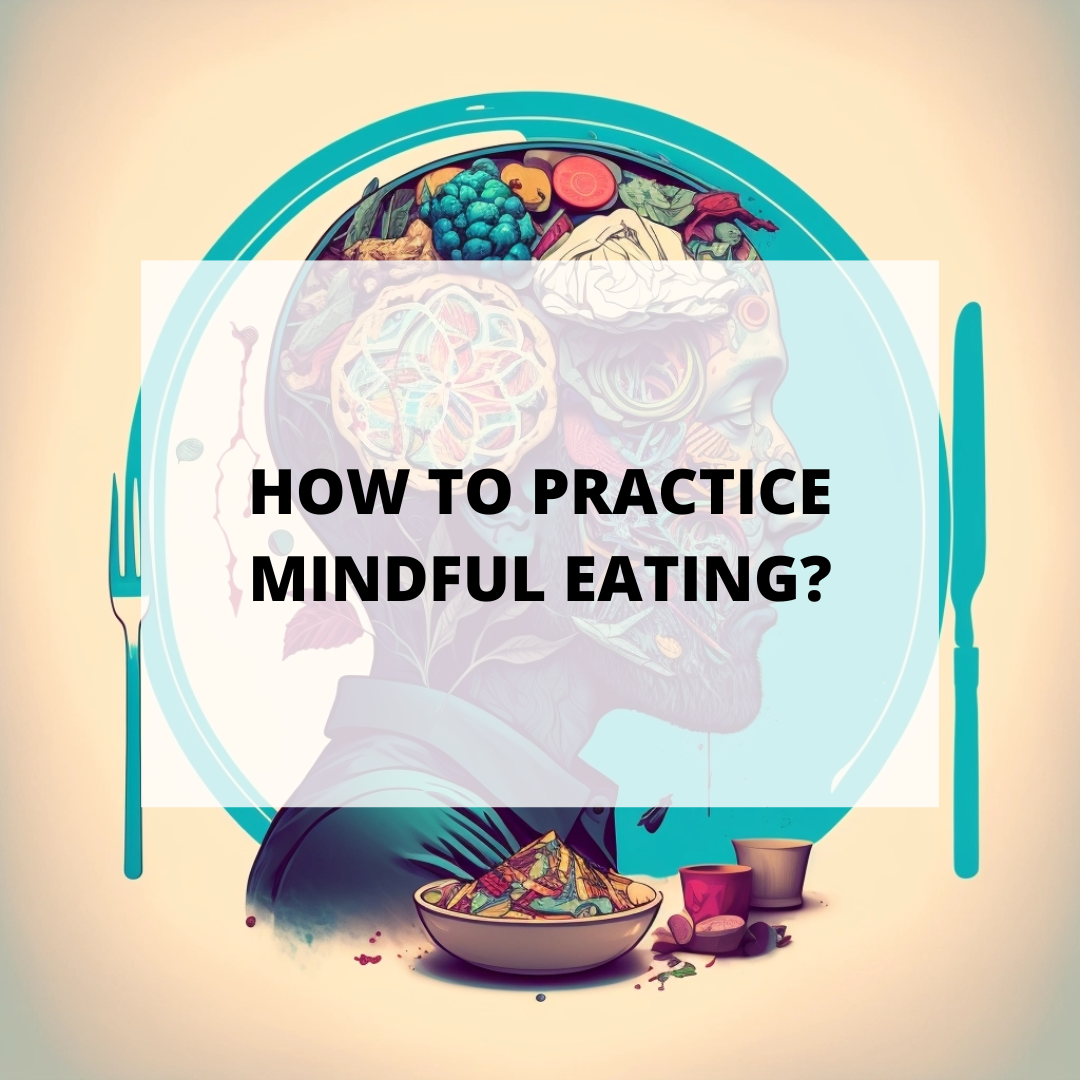
How to Practice Mindful Eating?
Eating is something we do every day, multiple times a day, and yet it's easy to forget that it's not just about nourishing our bodies, but also about nourishing our minds. Mindful eating is a practice that helps us slow down, pay attention to our food, and savor each bite. By doing so, we can reduce stress and anxiety, improve our digestion, and even lose weight. In this blog post, we'll explore the benefits of mindful eating and provide actionable tips to help you incorporate it into your daily life.
WHAT IS MINDFUL EATING?
Mindful eating is the practice of being present and fully engaged in the act of eating. It involves paying attention to the physical sensations of hunger and fullness, as well as the flavors, textures, and smells of food. Mindful eating is not about restricting or depriving oneself, but rather about enjoying food in a way that is both satisfying and nourishing.
BENEFITS OF MINDFUL EATING
There are numerous benefits to practicing mindful eating. Here are a few of the most significant:
Improved Digestion
When we eat in a rush or while distracted, we're more likely to experience digestive issues like bloating, gas, and indigestion. By taking the time to slow down and savor our food, we allow our bodies to properly digest and absorb nutrients.
Weight Loss
Mindful eating can also help with weight loss. When we eat mindlessly, we often consume more calories than our bodies need, leading to weight gain. By paying attention to our hunger and fullness cues and eating only when we're truly hungry, we can avoid overeating and maintain a healthy weight.
Reduced Stress and Anxiety
Eating mindfully can also be a form of self-care, helping to reduce stress and anxiety. When we take the time to fully enjoy our food, we activate the parasympathetic nervous system, which promotes relaxation and reduces stress.
Improved Relationship with Food
Finally, practicing mindful eating can help us develop a more positive and healthy relationship with food. By learning to listen to our bodies and eat intuitively, we can break free from the restrictive and damaging patterns of diet culture.
HOW TO PRACTICE MINDFUL EATING
Now that we've explored the benefits of mindful eating, let's dive into some actionable tips for incorporating it into your daily life.
1. Eat Without Distractions
One of the most important aspects of mindful eating is eliminating distractions. This means putting away your phone, turning off the TV, and focusing solely on your food. By doing so, you'll be better able to savor the flavors and textures of your food, as well as tune into your body's hunger and fullness cues.
2. Pay Attention to Your Senses
When you're eating, take the time to pay attention to your senses. Notice the colors and textures of your food, as well as the aromas and flavors. This can help you fully engage with your food and enjoy it more.
3. Chew Your Food Slowly
Another key aspect of mindful eating is taking the time to chew your food slowly and thoroughly. This can help with digestion and allow you to fully savor the flavors and textures of your food.
4. Check in with Your Hunger and Fullness
Throughout your meal, take the time to check in with your body's hunger and fullness cues. Are you truly hungry? Are you starting to feel full? By paying attention to these cues, you can avoid overeating and ensure that you're giving your body the nourishment it needs.
5. Practice Gratitude
Finally, take a moment to express gratitude for your food. This can be a simple prayer or a moment of silent reflection.
Sure! Here are some actionable tips for practicing mindful eating:
ACTIONABLE TIPS FOR PRACTICING MINDFUL EATING
- Eat without distractions. Turn off the TV and put away your phone to fully engage with your food.
- Pay attention to your senses. Notice the colors, textures, aromas, and flavors of your food.
- Chew your food slowly and thoroughly to aid in digestion and enjoy the flavors of your food.
- Check in with your body's hunger and fullness cues throughout your meal to avoid overeating.
- Express gratitude for your food before you begin eating. This can be a simple prayer or a moment of silent reflection.
- Try to eat in a calm and relaxed environment. If possible, avoid eating when you're feeling stressed or rushed.
- Take a few deep breaths before you begin eating to help you relax and fully engage with your meal.
- Use smaller plates and utensils to help control portion sizes and prevent overeating.
- Avoid multitasking while you're eating. Focus solely on your meal to fully enjoy and appreciate it.
- Eat slowly and mindfully, savoring each bite and fully engaging with the experience of eating.
CONCLUSION
In conclusion, mindful eating is a practice that can benefit both our physical and mental health. By taking the time to slow down, savor our food, and pay attention to our body's hunger and fullness cues, we can improve our digestion, reduce stress and anxiety, and even lose weight. Incorporating mindful eating into our daily lives doesn't have to be difficult. With a few simple tips and a willingness to be present in the moment, we can develop a more positive and healthy relationship with food. So, the next time you sit down to eat, take a deep breath, put away your distractions, and fully engage with the experience of nourishing your body and mind.
Want to easily generate a meal plan with a specific number of calories by selecting foods you want to eat? AutoMealPlanner makes it easy to generate a custom diet and know how much you should eat in each meal.

